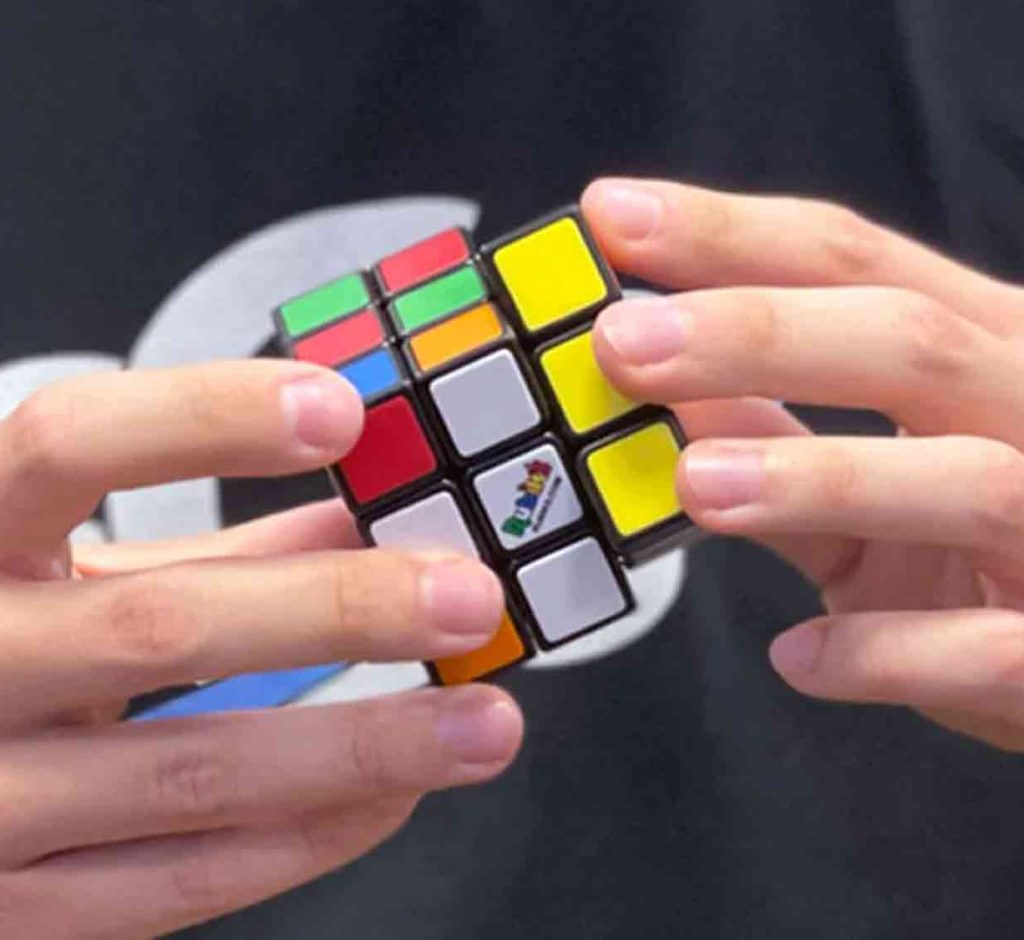The Sustainable Blockchain Solution — a Green Initiative
Category :
Author :
admin

Rubix is a Web 3.0-enabled, immutable, truly decentralized blockchain solution, using a Proof-chain Protocol that can scale with Asynchronous Parallelism and support real-world decentralized applications. Rubix has developed a superior consensus mechanism ‘Proof-of-Pledge’ (PoP) — a lightweight algorithm, which reduces carbon emissions by 100%. The PoP is highly scalable as it can run on laptops, desktops, and other IoT devices. Its on-chain validation makes the network immutable. The platform also offers instant validation and finality of transactions with a speed of 253.5M tps. Its flexible, sub-net architecture makes it an ideal choice for data-intensive applications, especially in the fields of DeFi, NFTs, DeWifi, DeCloud, and even GRC. Moreover, Rubix has recently introduced the “Green Blockchain Initiative’’ to capitalize on its carbon-neutral mechanism that puts Blockchain Sustainability at its forefront.
Introduction
The immutable blockchain technology has emerged as one of the most captivating technological innovations of the past decade, which has found widespread utility across multiple sectors like finance, education, businesses, and more. This distributed ledger technology, Blockchain, has notably come a long way from its initial use case in cryptocurrencies like Bitcoin and Ethereum. Apart from attracting countless individuals to speculate for-profits, blockchain has, over time, also enabled businesses to optimize their processes for cost-cutting. But, the growth has a price. Energy consumption by cryptocurrencies has become the latest flashpoint. Every blockchain consumes electricity depending on the consensus algorithm used to mine it for trading or spending.
At present, Bitcoin is using approximately 177.43 TWh of electricity, while Ethereum’s consumption lies at about 79.69 TWh annually. Their mining processes also generate carbon emissions — another environmentally disastrous price we pay for their widespread use. Therefore, environmentally-conscious investors desperately need an alternative blockchain that supports their sustainability cause. One such next-generation, peer-to-peer, web-scale, sustainable L1 blockchain is “Rubix”.
What makes Rubix suitable for ESG Applications?
The Rubix Network has become a pioneer of sustainable blockchains by developing and deploying the Proof-of-Pledge (PoP) consensus mechanism. This proprietary mechanism makes Rubix the first-ever enterprise-level Zero Carbon Footprint blockchain alternative.
Following are the key benefits of the PoP consensus mechanism:
Offers High Scalability
Rubix’s Parallel on-chain architecture allows millions of transactions to be performed simultaneously on millions of lightweight nodes. Every node can perform over four transactions per second, as every transaction takes approximately 250ms. Through the PoP mechanism, Rubix has attempted to utilize the unused CPU capacity of laptops, desktops, and mobile devices. This makes the network ultra-scalable and remarkably fast. The PoP mechanism also enables Rubix to carry out these transactions at zero gas fees with zero carbon emissions, unlike Bitcoin and Ethereum that use the Proof-of-Work and Proof-of-Stake mechanism, respectively, requiring high energy consumption.
Eliminates Classic Problems
The PoP consensus mechanism eradicates common blockchain problems like double-spending, gas fees, latency issues, or network congestion. In the case of Rubix, every laptop/device is considered a node in itself. It not only keeps the network lightweight but also prevents double-spending. Moreover, it prevents any congestion in the network. Since the network is lightweight, it becomes energy efficient. Also, the high transaction processing speed avoids any energy wastage, thereby ensuring the sustainability of the entire network.
Ensures High Security and Privacy
Rubix uses a patented ‘Non-Linear Secret Sharing’ Cryptography, which is a million times more secure than the ECDSA 256 used by Bitcoin or Ethereum. Additionally, the on-chain customizable smart contracts make it unhackable, even by quantum computers. Additionally, the PoP consensus mechanism helps mine tokens by ensuring zero carbon footprints. Overall, it offers higher security than any other competitive blockchain network.
Eco-friendly Tokens
The unique Proof-of-Pledge mechanism also ensures that 100% of Rubix tokens are eco-friendly and created for the purpose of mining only, not monetization. These tokens are designed in a manner to enable real-world adoption. Therefore, despite higher demand, the tokens will not increase in value. They are deflationary, and thus, sustainable in the long run.
Market Potential for ESG
In light of recent events concerning climate change and increased carbon footprints, the concept of environmental stewardship is gaining greater significance. Investors, shareholders, and other stakeholders have become increasingly cautious about every company’s activities and their impact on society. Transparency and factual representation of businesses’ environmental and social impacts have become a crucial part of every company’s financial statements. These are recorded in terms of the ESG (Environmental, Social and Governance) criteria, which is underway to become standardized and mandatory.
The Securities Exchange Commission is soon expected to publish an ESG compliance manual. According to Bloomberg, by 2025, the total ESG assets may hit $53 trillion, one-third of the global assets under management. Additionally, research suggests that purpose-driven, sustainable brands perform 175% better than the crowd. These trends suggest that sustainability will be at the forefront of any company’s fundamental analysis.
Blockchain in ESG: Use Cases
With increasing focus on the concept of the environmental and social impact of business operations, the various stakeholders closely watch how their company is striving to create long-term value by focusing on “sustainability as captured by ESG metrics.” However, the current system of ESG reporting is highly inconsistent, non-standardized, and poorly verified. Therefore, most businesses, big or small, lack accountability in the ESG space. Interestingly, blockchain technology offers an immutable, real-time shareable, and verifiable space to record ESG impacts of a company, its carbon credits, climate credits, and much more, thereby bringing transparency and increased accountability in ESG reporting.
In addition to ESG reporting, blockchain also contributes to various industries like:
Education: for secure record-keeping of degree certificates,
Politics: to ensure tamper-proof national e-voting systems,
Transparent and Ethical Supply chains- to track the movement of raw materials and avoid conflicts
Healthcare: for securely storing national health data
Democracy Systems: for enabling individuals’ participation in democratic voting systems, and much more.
These were a few use-case examples demonstrating how Blockchain can pave the way to become an enabler of ESG protocols.
Rubix is one such energy-efficient, 100% carbon neutral blockchain that aims to become an enabler of ESG criteria in the blockchain space.
How does the Rubix App Platform work?
As against the sequential transaction architecture used by Bitcoin or Ethereum, Rubix processes transactions in an asynchronous parallel way. Every transaction gets verified and finalized individually without being pooled with unrelated transactions. The native utility tokens of Rubix are capped at 51.4M. The network uses a Proof-of-Pledge (PoP) protocol wherein all network nodes pledge to become validators. This mining protocol makes Rubix eco-friendly and free of carbon emissions.
Rubix is built to enable decentralized applications that in turn power real-world applications. The platform is set to transform the data-storage and other industries by offering web 3.0-enabled digital commerce solutions. It will enable enterprises to build secure subnets on one public chain. It also aims to revolutionize industries like Decentralized Data Storage, Supply Chain Management, NFTs, Digital Rights Management, Decentralized Identity (DiD), and Decentralized Finance (DeFi) by offering sustainable and energy-efficient solutions, unlike its competitors.
Therefore, Rubix is a far-sighted blockchain platform that is better than its competitors in every aspect. To further penetrate the ESG space, Rubix has established a strategic partnership with Grounded, USA, a leading marketing firm helping global brands to achieve and communicate the purpose and ESG goals, and FINAO, USA, a digital technology company helping organizations drive digital adoption. Together, they aim to help leading global brands to achieve ESG impact by providing cutting-edge, sustainable, enterprise-level blockchain solutions.
Conclusion
By the end of 2022, Rubix looks forward to enabling more than 100 applications and, over time, emerge as the largest platform with millions of validators & transactions. The pioneering technology, when combined with environmentally sustainable solutions, will only produce synergized results for the platform itself, as well as its clients. With such immense potential, Rubix is prepared to become a major enabler of growth in the Web3.0 economy and revolutionize the way individuals and institutions perceive blockchain and sustainability.
Latest Blog
Category
Contact Us If You Have Any Question
Get in touch with our experts for seamless support and guidance.




